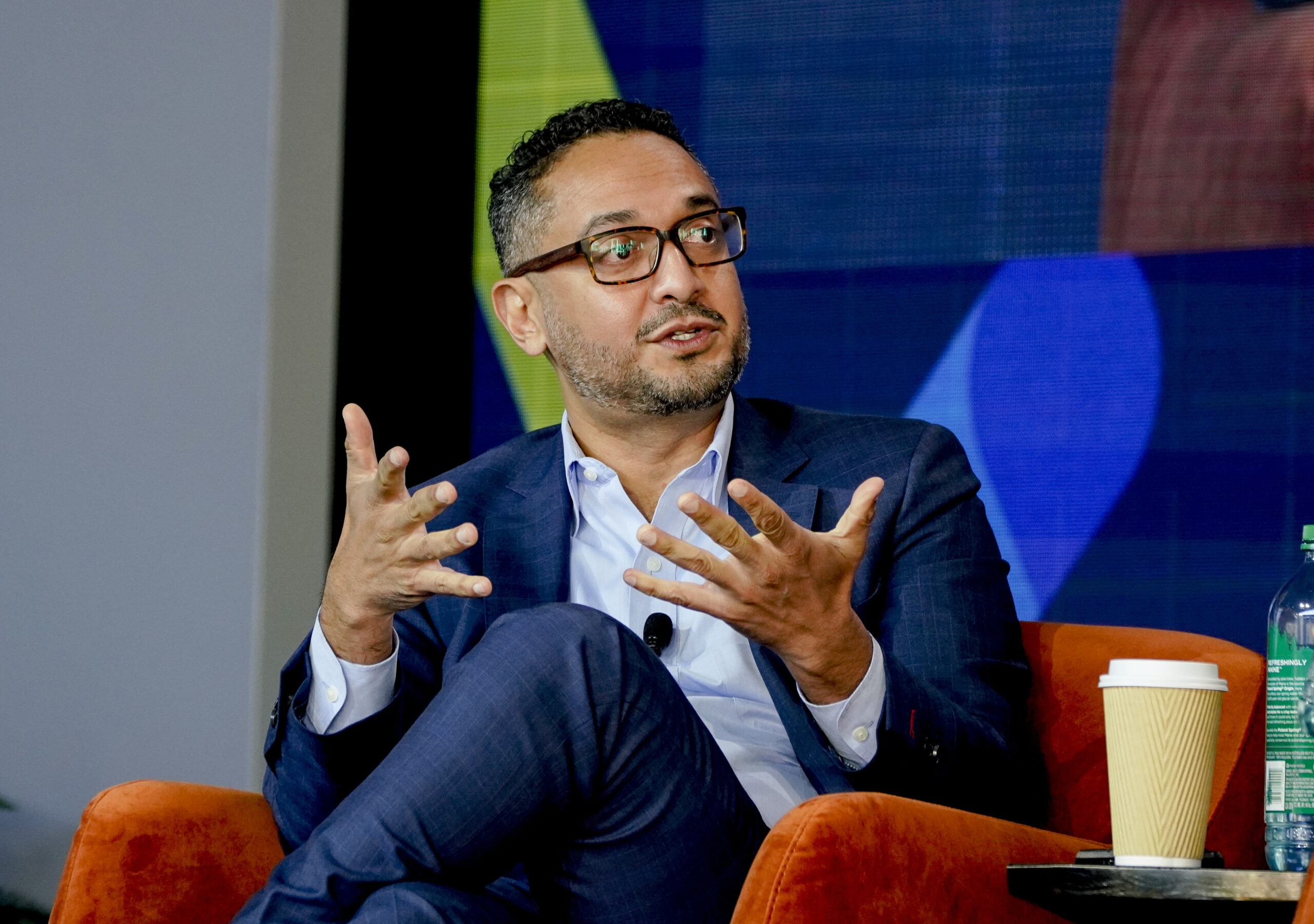
Exclusive: Illumina CEO Francis deSouza resigns, following challenge by activist investor
Francis deSouza has stepped down as CEO of Illumina, according to the company, just weeks after he survived an activist investor’s campaign to remove him from the DNA sequencing giant’s board.
His resignation as CEO and from the board is effective immediately, though he’ll stay on as an adviser until the end of July. Illumina general counsel Charles Dadswell will become interim CEO while the board conducts a search.
DeSouza’s departure follows the company’s recent and at times intense fight with Carl Icahn, the prickly activist investor who targeted the board and CEO after years of lackluster share performance and a major acquisition that has been blocked by antitrust authorities. The proxy battle, which concluded last month, led to the ouster of board chairman John Thompson and his replacement with an ally of Icahn’s. While deSouza survived, it was with a less-than-overwhelming show of support.
DeSouza started as CEO in 2016 when Illumina was a fast-growth company with a firm grip over the DNA sequencing market. Under his watch, it further expanded its reach beyond research labs and into hospitals and clinics, and brought to market new sequencing tools that have cut the cost of DNA analysis. But the San Diego-based company in recent years has been bogged down by emerging rivals and antitrust issues, chief among them the stalled $7.1 billion acquisition of the cancer-diagnostics company Grail, which Illumina has been forced to keep separate during the antitrust process.
Those challenges have been playing out for years. But they quickly came to a head as the proxy fight with Icahn gained in intensity this year, ending with the May 25 vote by shareholders to replace Thompson, the chairman.
In the weeks that followed the shareholder vote, deSouza raised the idea with the board of stepping down as CEO, according to people familiar with those conversations. Those talks remained informal until this Thursday, when deSouza submitted his resignation.
What followed was an intense 48-hour period during which the board and deSouza negotiated the terms of his exit, including how it would be announced publicly by the company. There was discussion about having him stay on as CEO in a nearly two-month transition period, until the end of July, according to the people. But it was eventually decided that a faster departure was better, and that his time as CEO would end with the announcement.
By late Friday, it was done, and the company put plans in motion to announce the exit first thing Sunday morning.
“It has been the privilege of a lifetime to serve Illumina,” deSouza said in a statement from the company announcing his departure. “I believe we are still at the very beginning of the impact Illumina will have on human health by unlocking the power of the genome.”
Under the terms of his compensation agreement described in the company’s proxy filing, deSouza won’t receive a payout related to his exit, and people familiar with the situation confirmed that deSouza didn’t try to negotiate for one.
Scott Gottlieb, former FDA commissioner and an Illumina board member, in a Tweet said deSouza helped shape a new era where Illumina’s “innovations transitioned from a research tool to an essential part of patient care.”
Antitrust struggles
A new CEO will face one of the biggest questions about Illumina’s future: What happens with Grail?
The Grail deal came after deSouza and Illumina tried in 2018 to buy the sequencing company Pacific Biosciences, also known as PacBio, for $1.2 billion. That transaction became mired in antitrust scrutiny and the two companies agreed in January 2020 to walk away from the merger.
In September 2020, Illumina made an even bigger bet — a $7.1 billion acquisition of cancer-testing company Grail.
Antitrust authorities objected to that deal, as well — but Illumina took the risky step of closing on the transaction anyway. The European Union blocked the takeover and the FTC has ordered the company to unwind it. While Illumina is challenging these regulatory moves, Grail has been forced to operate as a separate, unintegrated company while the matter plays out.
The bogged-down takeover was a key target of Icahn’s criticism. The activist called the decision to close over regulators’ objections a mistake and a distraction. In an interview with Endpoints News earlier this year, deSouza defended the decision, calling Grail a linchpin of the company’s long-term strategy. He has also pointed to a strong launch for the company’s newest DNA sequencer.
Another point of attack for Icahn was deSouza’s compensation, which reached $26.7 million in 2022, an 86% increase from the prior year, despite the company’s stock losing roughly half of its value over the last two years.
“I am happy to see all of the recent events occurring at Illumina. While obviously I believe the change of CEO should have come meaningfully sooner, it is still a very positive occurrence,” Icahn said in a Tweet after the announcement.
Icahn had called for deSouza to be replaced and said he wanted former CEO Jay Flatley to resume running the company. His victory with shareholders was partial: Thompson, the chairman, was voted off, though Robert Epstein, another Illumina board member targeted by Icahn, survived with 76% support from shareholders. DeSouza got only 71% support from shareholders. Icahn gained a foothold by adding Andrew Teno, a portfolio manager at Icahn Capital, who received 60% support.
Editor’s note: Drew Armstrong contributed reporting.
This article was updated with comments from Icahn and Gottlieb.